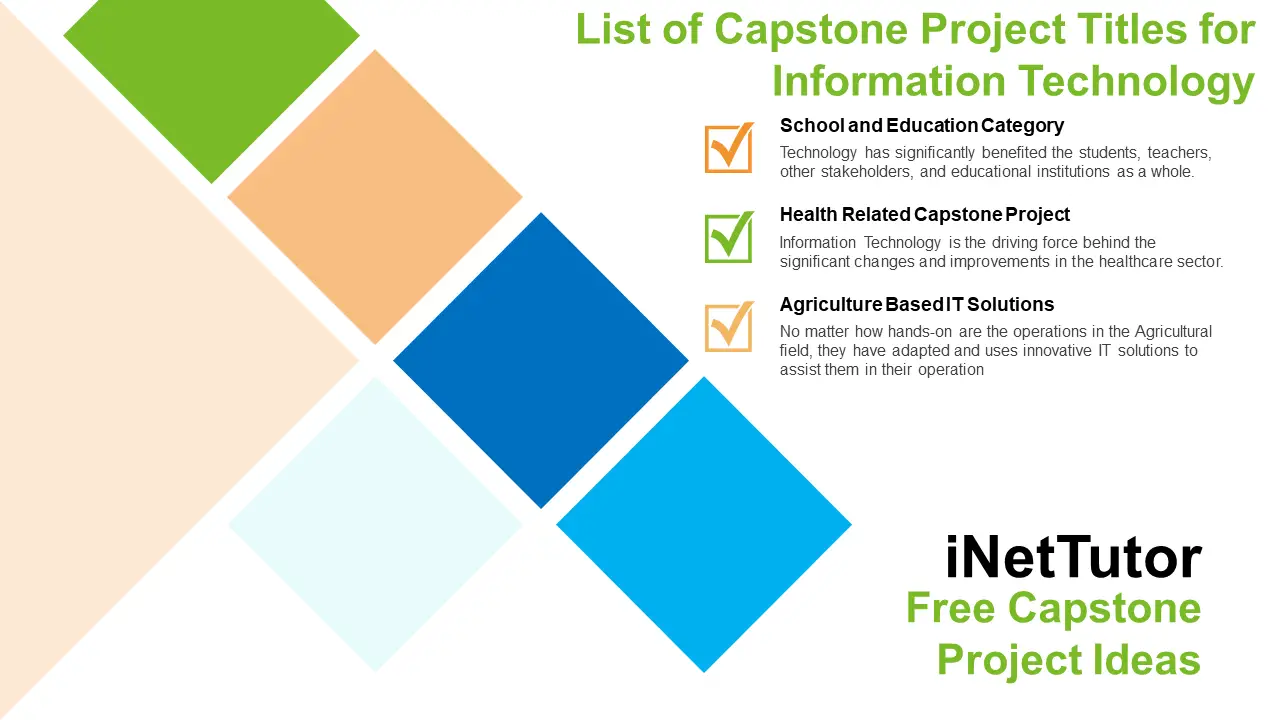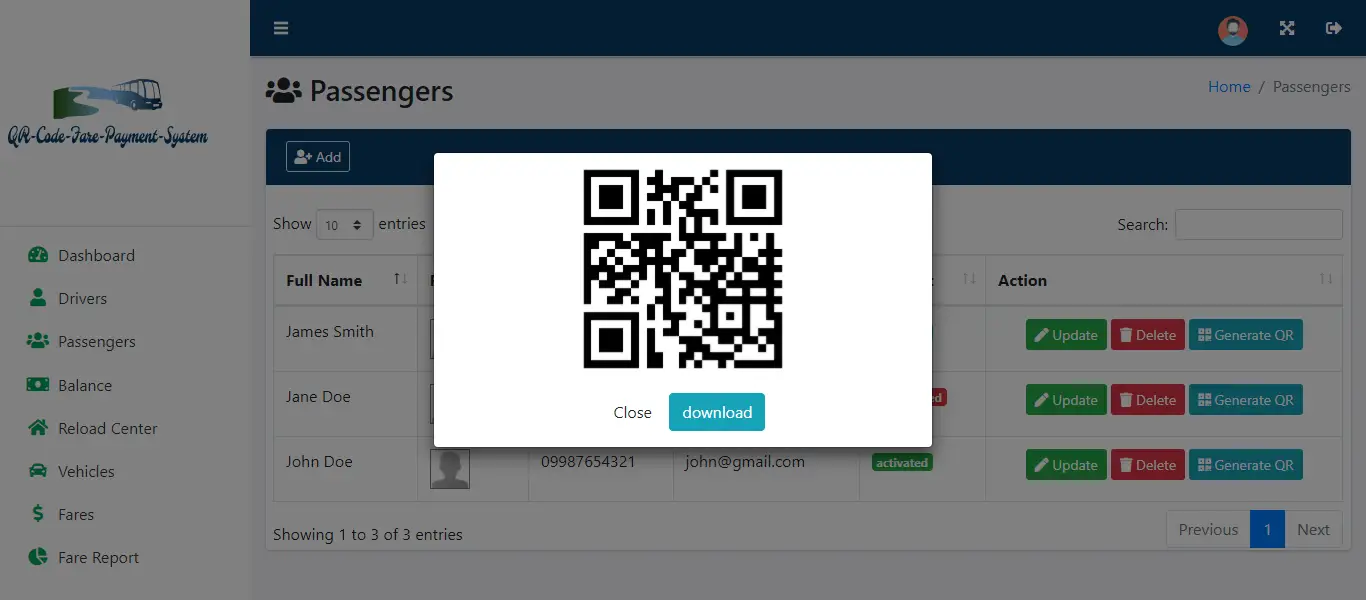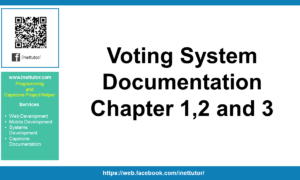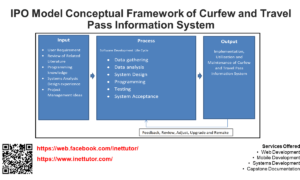Top IT Projects in Transportation
Transportation is a crucial part of our everyday lives, and it plays a significant role in the economy of every country. However, with the ever-increasing demand for transportation services, there is a growing need to develop and implement innovative and efficient technologies to improve the industry’s operations. This is where information technology (IT) comes in, with the potential to transform the transportation sector significantly. From traffic management systems to online ticket booking platforms, there are numerous IT projects in transportation that have already been developed, and many more are in progress. In this blog post, we will explore the top IT projects in transportation, their benefits, and how they are transforming the industry. We will also discuss some IT capstone project ideas for students interested in pursuing a career in this field. So, if you want to learn more about how IT is revolutionizing transportation, keep reading!
Importance of IT projects in the transportation industry
Table of Contents
- Importance of IT projects in the transportation industry
- Impact of technology on the future of transportation
- Advantages and Disadvantages of IT projects in Transportation
- List of IT Capstone Project Ideas for Transportation Industry
- Recap of the importance of IT projects in the transportation industry:
- Final thoughts on the impact of technology on the future of transportation:
The transportation industry is a vital component of the global economy, and technological advancements have played a crucial role in its growth and development. The use of IT projects has become increasingly important in the transportation industry, as it offers significant benefits in terms of efficiency, safety, and cost savings.
One of the main benefits of IT projects in the transportation industry is improved efficiency. For example, the use of intelligent transportation systems can help to reduce congestion on roads and highways, as well as improve the flow of traffic. This can lead to faster and more reliable transportation, reducing the time and costs associated with delays and inefficiencies.
Another key benefit of IT projects is increased safety. Transportation is inherently risky, and IT projects can help to mitigate these risks. For example, the use of advanced driver assistance systems (ADAS) can help to prevent accidents by alerting drivers to potential hazards, and in some cases, even taking control of the vehicle to avoid collisions.
IT projects can also help to reduce costs in the transportation industry. For example, the use of real-time tracking systems can help to optimize routes and reduce fuel consumption. In addition, the use of predictive maintenance systems can help to reduce the downtime and costs associated with equipment failures.
Moreover, IT projects can help to enhance the customer experience by providing more convenience and flexibility. For example, the use of mobile apps for booking and payment can make the process more seamless and user-friendly. Additionally, the use of real-time information systems can provide passengers with up-to-date information about schedules and delays, improving their overall travel experience.
The adoption of IT projects is essential for the transportation industry to remain competitive and meet the growing demands of consumers. By improving efficiency, safety, cost savings, and customer experience, IT projects can help to drive growth and innovation in the transportation industry.
Impact of technology on the future of transportation
The impact of technology on the future of transportation is immense and far-reaching. Emerging technologies such as autonomous vehicles, electric vehicles, and hyperloop transportation systems have the potential to revolutionize the way we move people and goods. One of the key benefits of these technologies is increased safety, as autonomous vehicles can significantly reduce accidents caused by human error. Additionally, electric vehicles and hyperloop systems can reduce carbon emissions and help combat climate change. Another significant impact of technology on transportation is increased efficiency and convenience. With the advent of ride-sharing and on-demand transportation services, individuals can quickly and easily access transportation without the need for car ownership. Furthermore, advances in communication and data management technology have enabled the development of smart transportation systems that can optimize traffic flow and reduce congestion. The use of big data and artificial intelligence can also improve the accuracy of travel time predictions and assist in route planning. As technology continues to advance, it is likely that we will see even more innovative and sustainable transportation solutions emerge, such as vertical take-off and landing (VTOL) aircraft and hyperloop tunnels that can transport passengers and cargo at high speeds over long distances. Overall, the impact of technology on the future of transportation is exciting and holds immense potential for improving safety, efficiency, and sustainability in the way we move people and goods.

Advantages and Disadvantages of IT projects in Transportation
The integration of IT projects into the transportation industry has brought numerous advantages, including improved safety, efficiency, and cost-effectiveness. One of the primary benefits is enhanced safety. The use of GPS technology and traffic sensors has enabled transportation companies to better manage traffic flow and minimize accidents. Additionally, real-time monitoring of vehicles and drivers’ behavior has helped identify and address risky driving behaviors, reducing the likelihood of accidents.
Another advantage is improved efficiency. The use of IT projects such as automated scheduling and dispatching systems has helped transportation companies optimize their operations, reducing delays and wait times for customers. Additionally, the use of mobile apps and online booking systems has made it easier for customers to access transportation services, further improving efficiency. Furthermore, the integration of IT projects has also made it easier to track and manage inventory, reducing losses due to theft or damage.
However, IT projects in transportation also come with some disadvantages. One of the main concerns is the potential for system failures, which could disrupt transportation services and cause significant inconveniences for customers. Additionally, the high cost of implementing and maintaining IT projects could be a barrier for some transportation companies. Furthermore, the integration of technology in transportation could also lead to job losses, particularly for drivers and other workers whose jobs may be automated.
In conclusion, the integration of IT projects in the transportation industry has brought numerous advantages, including improved safety, efficiency, and cost-effectiveness. However, transportation companies must be aware of the potential disadvantages, such as the risk of system failures and the cost of implementing and maintaining IT projects. Overall, the benefits of IT projects in transportation outweigh the drawbacks, and the industry must continue to embrace technological advancements to stay competitive and meet the evolving needs of customers.
List of IT Capstone Project Ideas for Transportation Industry
- Real-time vehicle tracking system – Develop a system to track the location and status of vehicles in real-time, allowing for better fleet management and efficient routing.
- Smart traffic management system – Create an intelligent traffic management system that uses real-time data to optimize traffic flow and reduce congestion.
- Autonomous vehicle simulation – Design and develop a simulation environment for autonomous vehicles to test their behavior in various scenarios.
- Freight matching platform – Develop a platform that matches shippers with carriers based on location, capacity, and availability.
- Predictive maintenance system – Implement a predictive maintenance system for vehicles to reduce downtime and maintenance costs.
- Safety analytics tool – Create a tool that analyzes data on road accidents, weather conditions, and other factors to identify potential safety risks and improve road safety.
- Ride-sharing platform – Build a ride-sharing platform that connects commuters with others traveling to similar destinations, reducing traffic congestion and carbon emissions.
- Intelligent transportation system for smart cities – Develop an intelligent transportation system that integrates with other smart city systems to improve mobility, reduce traffic, and enhance urban living.
- Route optimization system – Develop a system that optimizes delivery routes based on traffic patterns, weather conditions, and other variables to reduce delivery times and costs.
- Public transportation app – Create an app that provides real-time information on public transportation schedules, routes, and delays to help commuters plan their trips more efficiently.
- Online Bus Ticket Reservation: This project involves developing a web-based platform for booking and purchasing bus tickets online. The system allows users to search for available bus routes, view ticket prices, and make online payments. It also includes features such as seat selection, cancellation, and rescheduling of tickets.
- Vehicle Rental System with Mobile App Support: This project involves developing a mobile app and web-based platform for managing and renting vehicles. The system allows users to browse available vehicles, view rental prices, and make online bookings. It also includes features such as vehicle tracking, pickup and drop-off scheduling, and online payments.
- Bike Portal Information System: This project involves developing a web-based platform for managing and sharing information about bike rentals and bike-sharing services. The system includes features such as bike availability, rental rates, and rental locations.
- Vehicle Parking Management System: This project involves developing a system for managing and monitoring vehicle parking. The system includes features such as online booking, parking space availability, and payment processing.
- Vehicle Impoundment Information Management System: This project involves developing a system for managing and tracking impounded vehicles. The system includes features such as vehicle identification, impoundment location, and payment processing.
- Vehicle Registration Portal: This project involves developing a web-based platform for registering and renewing vehicle registrations. The system includes features such as online payments, vehicle identification, and registration renewal reminders.
- Vehicle Franchising and Drivers Offense Software: This project involves developing a software system for managing vehicle franchising and monitoring driver offenses. The system includes features such as driver identification, franchise registration, and offense tracking.
- Traffic Management System: This project involves developing a system for managing and monitoring traffic flow. The system includes features such as traffic cameras, road sensors, and real-time traffic updates.
- Mobile Based Airline Reservation System (Android and IOS): This project involves developing a mobile app for booking and managing airline reservations. The system includes features such as flight schedules, seat selection, and online payments.
- Tricycle Driver Conduct Reporting Mobile Application: This project involves developing a mobile app for reporting and monitoring tricycle driver conduct. The system includes features such as driver identification, reporting of driver misconduct, and penalty assessment.
- Courier Management System: This project involves developing a system for managing and tracking courier deliveries. The system includes features such as delivery scheduling, package tracking, and payment processing.
- QR Code Fare Payment System: This project involves developing a system for managing and processing fare payments using QR codes. The system includes features such as payment processing, fare validation, and passenger identification.
- Driving School Management System: This project involves developing a system for managing and monitoring driving schools. The system includes features such as student registration, course scheduling, and certification tracking.
- PUV Transportation Route and Mapping System: This project involves developing a system for managing and mapping public utility vehicle routes. The system includes features such as route identification, mapping, and fare calculation.
- GPS based Vehicle Theft Detection System using GSM Technology: This project involves developing a system for detecting and tracking stolen vehicles using GPS and GSM technology. The system includes features such as vehicle tracking, alert notifications, and location-based recovery.
- Vehicle Insurance Information System: This project involves developing a system for managing and tracking vehicle insurance policies. The system includes features such as policy registration, renewal reminders, and claim processing.
- Shipping Management System: This project involves developing a system for managing and tracking shipping deliveries. The system includes features such as delivery scheduling, package tracking, and payment processing.
- Driving School Management System: This project involves developing a system for managing and monitoring driving schools. The system includes features such as student registration, course scheduling, and certification tracking.
- Passenger Safety Monitoring System – A system that uses sensors and AI algorithms to monitor passenger behavior and detect potential safety hazards, such as distracted driving or falling asleep at the wheel. This system can provide real-time alerts to drivers or dispatchers to prevent accidents and improve passenger safety.
- Route optimization system – Develop a system that optimizes delivery routes based on traffic patterns, weather conditions, and other variables to reduce delivery times and costs.

Recap of the importance of IT projects in the transportation industry:
In summary, IT projects play a crucial role in the transportation industry by providing innovative solutions that improve safety, efficiency, and convenience. The adoption of technology in transportation has led to the development of systems and software that optimize traffic flow, enhance transportation safety, and reduce carbon emissions. IT projects in transportation also help companies to automate their operations, reduce manual labor, and minimize errors, which ultimately lead to cost savings and improved customer satisfaction.
Final thoughts on the impact of technology on the future of transportation:
As technology continues to advance, the transportation industry will undoubtedly continue to undergo significant changes. Future transportation systems are likely to be more automated, connected, and sustainable, with a greater emphasis on passenger safety, comfort, and convenience. The continued development of electric and hybrid vehicles, the integration of artificial intelligence, and the increasing use of big data analytics will revolutionize the transportation industry and transform the way we move from one place to another.
Overall, the impact of technology on the future of transportation is expected to be transformative and far-reaching, with the potential to significantly improve the way we live and work. While there may be some challenges associated with the adoption of new technologies, such as the need for regulatory frameworks and the potential for job displacement, the potential benefits are vast and significant. By embracing technology and investing in innovative IT projects, the transportation industry can continue to drive progress, sustainability, and growth.
Readers are also interested in:
- 70 Best Web-Based Capstone Projects in PHP and MySQL
- Best 75 List of IT Capstone Project for Agriculture
- 40 List of DBMS Project Topics and Ideas
You may visit our Facebook page for more information, inquiries, and comments. Please subscribe also to our YouTube Channel to receive free capstone projects resources and computer programming tutorials.
Hire our team to do the project.


